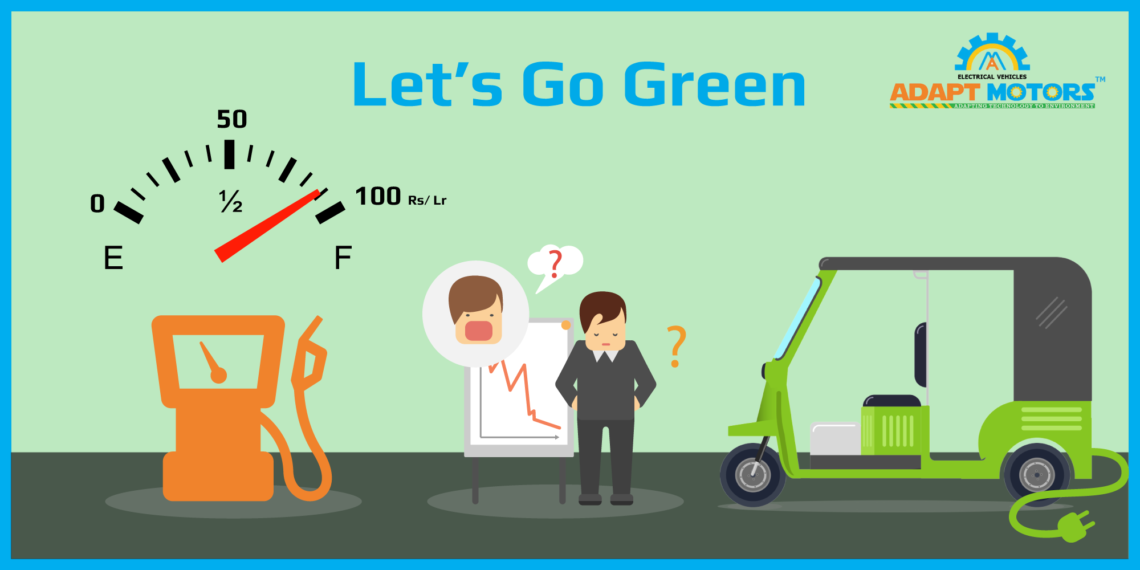Shift to Electric Vehicles to escape from the ever hiking fuel prices.

Adopting electric vehicles (EVs) represents a transformative step forward from an environmental perspective. Eco-friendly electric mobility vehicles offer a sustainable alternative to gasoline and diesel vehicles, especially as fuel prices approach Rs 100 per liter. By choosing an electric rickshaw, you align yourself with a forward-thinking vision for the future, placing yourself among the “smartest people on the globe.” This choice not only helps create a significant positive impact on the environment but also allows you to save money in the long run.
While electric cars present a smarter choice over traditional fuel vehicles in many aspects, they do come with certain challenges, particularly regarding long-distance travel and safety. However, battery rickshaws are specifically designed for defined purposes, making them ideal for short-range use. Hyderabad-based Adapt Motors has developed two exceptional models: the Sweekar (Passenger Auto) and Sweekar-L (Electric Load Puller Auto). These vehicles serve as intelligent alternatives to diesel and petrol autos, effectively addressing 80% of the needs in this segment.
Extensive research by Adapt Motors revealed that passenger autos are predominantly used for short commutes along fixed routes, with daily distances typically not exceeding 100 km. In response, they launched the Sweekar Passenger E-Rickshaw, which offers a mileage of 100 km with an overnight charging time of just 5 to 6 hours. This convenient rechargeable battery technology allows drivers to easily plug in their vehicles at night and operate throughout the day without interruptions.
Electric cargo autos also cater to specific market demands. They are increasingly utilized by appliance stores, hardware stores, and restaurants to deliver goods from central kitchens to various outlets. The Sweekar-L, with a load capacity of 500 kg, provides the same impressive 100 km mileage with only 5 to 6 hours of charging. This performance meets the needs of businesses while offering a better return on investment, costing just 40 paisa per kilometer.
For both the Passenger E-Rickshaw and Electric Cargo Auto, if the daily driving range exceeds 100 km, owners can take advantage of lunch breaks and short intervals between rides to recharge their vehicles. Additionally, the maintenance of electric autos is straightforward—drivers only need to check and replace the distilled water once a month.
With the rise of battery manufacturing technologies, the market for e mobility vehicles continues to grow. Many customers are turning to electric autos as an excellent alternative to traditional fuel vehicles, finding them both cost-effective and environmentally friendly. This shift towards electric mobility technology not only enhances operational efficiency but also contributes to a cleaner, greener future.





